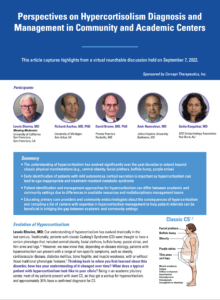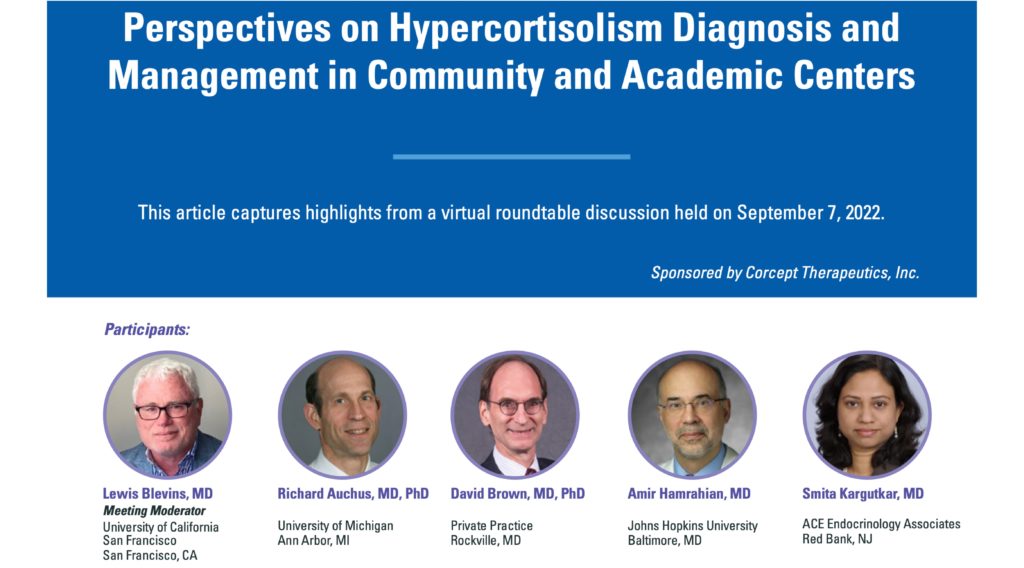A roundtable on hypercortisolism perspectives recently sponsored by Corcept Therapeutics highlights diagnosis and management in community and academic settings. A group of leading clinicians and educators offer their experiences and views in this fascinating article. Key points centered around diagnosis and management, focusing on, among other subjects, the evolution of hypercortisolism, identifying patients, managing patients in the community and academic settings, and bridging the gap between community and academia.

The summary highlights the significant evolution of the understanding of hypercortisolism over the past decade to extend beyond the classic physical manifestations; the importance of early identification of patients with mild autonomous cortisol secretion as hypercortisolism can lead to age-inappropriate and treatment-resistant metabolic syndrome; the identification of patients and management approaches for hypercortisolism, which can differ between academic and community settings due to differences in available resources and multidisciplinary management teams; and the importance of educating primary care providers and community endocrinologists about the consequences of hypercortisolism and compiling a list of centers with expertise in hypercortisolism management to help patient referrals, which can be beneficial in bridging the gap between academic and community settings.
Read more about hypercortisolism and Cushing’s
© 2023 – 2024, J D Faccinetti. All rights reserved.
